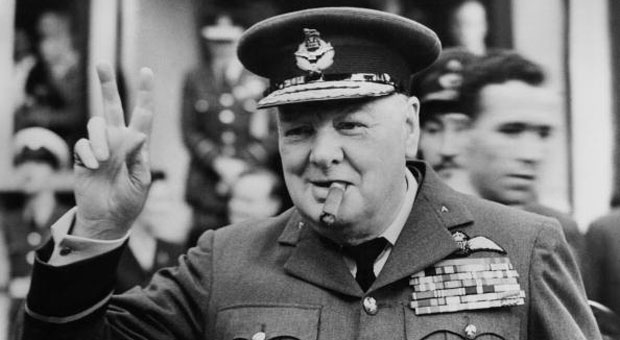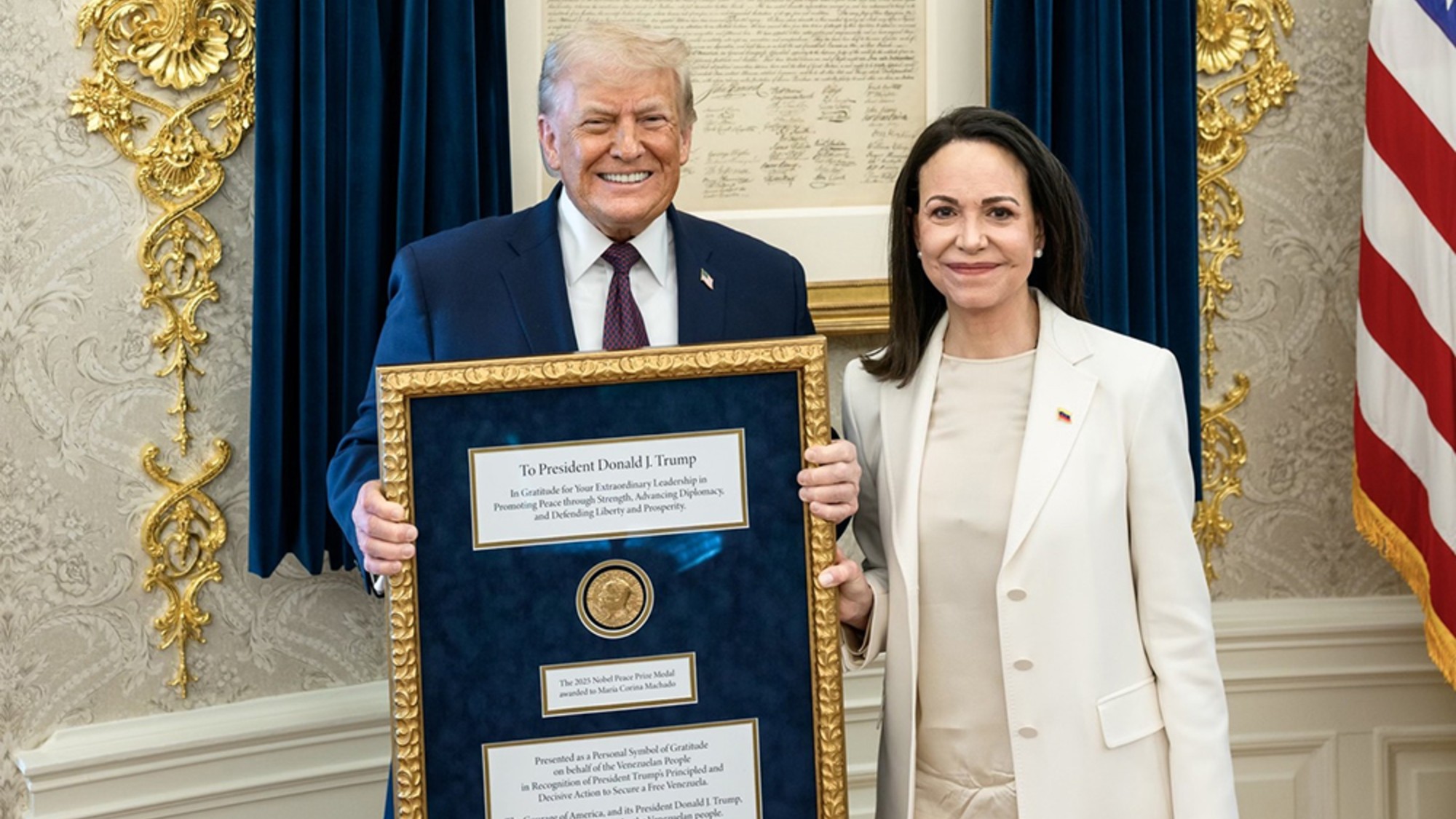Winston Churchill: antifascist hero or racist warmonger – or both?
Wartime leader celebrated as a hero but espoused racist views in his lifetime

A free daily email with the biggest news stories of the day – and the best features from TheWeek.com
You are now subscribed
Your newsletter sign-up was successful
The defacement of a statue of Winston Churchill during a Black Lives Matter protest in London has put the legacy of the wartime prime minister back under the spotlight.
The statue was spray painted with the words “Churchill was a racist”, while video footage from the protests showed the crowd chanting the slogan. Some protesters were also seen holding banners saying “British colonialism is to blame”, reports The i.
The incident happened shortly after demonstrators in Bristol tore down a statue of 17th-century slave trader Edward Colston, and threw it into the city’s river.
The Week
Escape your echo chamber. Get the facts behind the news, plus analysis from multiple perspectives.

Sign up for The Week's Free Newsletters
From our morning news briefing to a weekly Good News Newsletter, get the best of The Week delivered directly to your inbox.
From our morning news briefing to a weekly Good News Newsletter, get the best of The Week delivered directly to your inbox.
Churchill as hero:
Churchill is widely regarded as one of the greatest wartime leaders Europe has ever seen, leading the Allies to victory in the Second World War. “It was his inspiration that prevented Britain from joining the rest of Europe in surrendering to the might of Nazi Germany,” argues British historian Max Hastings in the Daily Mail.
The former prime minister was also responsible for fostering the “special relationship” between the UK and the US that continues today, and alerting the West to the burgeoning postwar threat of Soviet communism, with his infamous “Iron Curtain” speech.
Indeed, his powerful rhetoric inspired the nation throughout his political career. “Who could deny the potency of lines like: ‘we shall fight them on the beaches’, ’blood, sweat and tears’ and ‘their finest hour’,” says the BBC.
A free daily email with the biggest news stories of the day – and the best features from TheWeek.com
Less sizeable but still significant achievements include reforming the prison system, introducing a minimum wage and bringing in legislation that taxed the wealthy to pay for social welfare reforms. “On [some] smaller issues he made some poor decisions,” concedes The Guardian’s Kenneth Baker, “but he got the big issues right.”
Churchill received numerous awards, honours and medals throughout his lifetime. He was knighted by the Queen in 1953, the same year that he was awarded the Nobel Prize for Literature “for his mastery of historical and biographical description as well as for brilliant oratory in defending exalted human values”.
When he died he received the rare honour of a state funeral.
“Churchill was a decent man and honourable man, as well as a charming one,” argues John Simpson on the BBC website. “It was these qualities, not just his famous defiance that made him prime minister.”
And his public popularity is unassailable. In 2002, Churchill was voted the greatest Briton who ever lived, beating Darwin, Shakespeare and Elizabeth I to the top spot.
Churchill as villain:
“There’s a danger in Churchill gaining a purely iconic status because that actually takes away from his humanity,” Allen Packwood, director of the Churchill Archives Centre, told the BBC.
Many fellow historians agree. John Charmley argues that it is important to remember that “great men can commit great mistakes, and Churchill’s are on the same gargantuan scale as his achievements”.
Churchill was a keen supporter of eugenics, something he had in common with the leaders of Nazi Germany, where an estimated 400,000 disabled people were forcibly sterilised.
He once said that “the multiplication of the feeble-minded is a very terrible danger to the race”, and drafted a highly controversial piece of legislation which mandated that those suffering from mental illness be sterilised, according to the New Statesman.
Many historians also refuse to forgive Churchill for his views on race. The Guardian reports that he once said: “I do not admit... that a great wrong has been done to the Red Indians of America or the black people of Australia... by the fact that a stronger race, a higher grade race... has come in and taken its place.”
Speaking as a new parliamentarian, Churchill wrote “I think we shall have to take the Chinese in hand and regulate them… The Aryan stock is bound to triumph”.
Though it is often said Churchill was simply holding the views of his time, there is plenty of evidence suggesting that he was more racist and reactionary than his peers.
The journalist and biographer Max Hastings described his views as “unenlightened by comparison with that of America’s president [Franklin Roosevelt], or even by the standards of his time,” according to History Collection.
Meanwhile, historian John Charmley, author of several books about Churchill, said that “even to most Conservatives, let alone Liberals and Labour, Churchill’s views on India between 1929 and 1939 were quite abhorrent”.
When the Kurds rebelled against British rule in 1920, Churchill said he did not understand the “squeamishness” surrounding the use of gas as a weapon. “I am strongly in favour of using gas against uncivilised tribes,” he said. “[It] would spread a lively terror.”
When Barack Obama took office in the White House, he returned a bust of Churchill to Britain. “It’s not hard to guess why,” says Hari. “His Kenyan grandfather, Hussein Onyango Obama, was imprisoned without trial for two years and was tortured on Churchill’s watch, for resisting Churchill’s empire.”
As secretary of state for war, Churchill sent in the infamous Black and Tans to fight the IRA in 1920. The unit became known for vicious attacks on civilians and violent reprisals.
Historian Peter Hart described it as an “astoundingly counterproductive” move by Churchill, according to The Independent. “IRA violence only increased,” he said.
Churchill also exhibited a strong hatred for Mahatma Ghandi and his campaign of peaceful resistance, which he saw as threat to the British Empire. He once raged that Ghandi “ought to be lain bound hand and foot at the gates of Delhi, and then trampled on by an enormous elephant with the new Viceroy seated on its back”.
Veteran British journalist Peregrine Worsthorne has accused Churchill of warmongering. “Seldom has there been a statesman as good at glorifying war, and as indecently eager to wage war as Winston Churchill,” he said. “All his works demonstrate his love of war, glamourise its glories and minimise its horrors.”
Worsthorne accuses historians of leaving out the atrocities that Churchill oversaw as prime minister, and argues that he would have been a great leader “if only he had atoned for his warmongering”.
Studies also claim to have proven that Winston Churchill’s foreign policy may have been the primary cause of the the Bengal famine of 1943, in which up to three million people died.
Indian newspaper The Economic Times says that policy “lapses” such as “prioritising distribution of vital supplies to the military, civil services and others as well as stopping rice imports and not declaring Bengal famine hit” were among the factors that led to the enormous magnitude of the tragedy.
According to The Guardian, Churchill expressed an element of “denial” over the famine, both downplaying the severity of it and also blaming the suffering on Indians themselves, claiming they were exacerbating the problem by “breeding like rabbits”.
-
 How the FCC’s ‘equal time’ rule works
How the FCC’s ‘equal time’ rule worksIn the Spotlight The law is at the heart of the Colbert-CBS conflict
-
 What is the endgame in the DHS shutdown?
What is the endgame in the DHS shutdown?Today’s Big Question Democrats want to rein in ICE’s immigration crackdown
-
 ‘Poor time management isn’t just an inconvenience’
‘Poor time management isn’t just an inconvenience’Instant Opinion Opinion, comment and editorials of the day
-
 How corrupt is the UK?
How corrupt is the UK?The Explainer Decline in standards ‘risks becoming a defining feature of our political culture’ as Britain falls to lowest ever score on global index
-
 ‘Bad Bunny’s music feels inclusive and exclusive at the same time’
‘Bad Bunny’s music feels inclusive and exclusive at the same time’Instant Opinion Opinion, comment and editorials of the day
-
 Is the Gaza peace plan destined to fail?
Is the Gaza peace plan destined to fail?Today’s Big Question Since the ceasefire agreement in October, the situation in Gaza is still ‘precarious’, with the path to peace facing ‘many obstacles’
-
 Trump: A Nobel shakedown
Trump: A Nobel shakedownFeature The president accepts gold medal he did not earn
-
 How Iran protest death tolls have been politicised
How Iran protest death tolls have been politicisedIn the Spotlight Regime blames killing of ‘several thousand’ people on foreign actors and uses videos of bodies as ‘psychological warfare’ to scare protesters
-
 ‘The science is clear’
‘The science is clear’Instant Opinion Opinion, comment and editorials of the day
-
 The Board of Peace: Donald Trump’s ‘alternative to the UN’
The Board of Peace: Donald Trump’s ‘alternative to the UN’The Explainer Body set up to oversee reconstruction of Gaza could have broader mandate to mediate other conflicts and create a ‘US-dominated alternative to the UN’
-
 The high street: Britain’s next political battleground?
The high street: Britain’s next political battleground?In the Spotlight Mass closure of shops and influx of organised crime are fuelling voter anger, and offer an opening for Reform UK